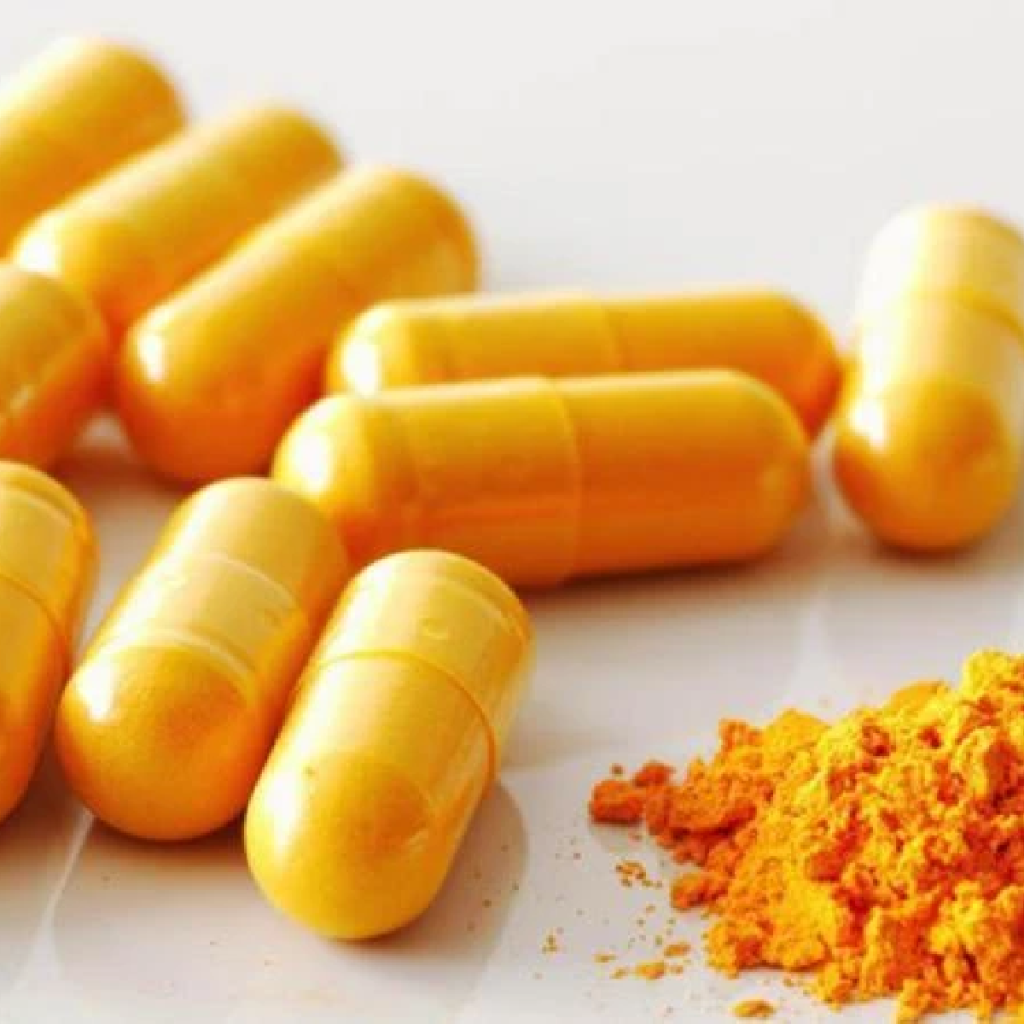Discover the potential benefits of Omega-3 and turmeric supplements for memory improvement.
Can Omega-3 and Turmeric Supplements Improve Memory?
In today’s fast-paced world, it’s no wonder that we all strive to enhance our memory and cognitive function. The good news is that there might be a natural solution that can help boost your brainpower: omega-3 and turmeric supplements. Yes, you read that right! These two powerful ingredients have been making waves in the health and wellness community for their potential memory-enhancing effects.

Understanding Omega-3 and Its Benefits
First things first, let’s delve into the fascinating world of omega-3 fatty acids. These essential fats play a pivotal role in our overall health, with numerous benefits for our bodies. Omega-3 is commonly found in fatty fish like salmon, mackerel, and sardines. However, many people opt for omega-3 supplements to ensure they get an adequate daily dose.
Now, let’s explore the role of omega-3 in the body in more detail. Omega-3 fatty acids are vital for maintaining brain health, reducing inflammation, and improving heart health. They are known to support cognitive function, including memory, attention, and problem-solving skills. Omega-3 also aids in promoting healthy brain cell communication and structure. So, it’s no wonder that it has become a hot topic in memory enhancement conversations.
The Role of Omega-3 in the Body
Omega-3 fatty acids are not only beneficial for brain health but also for the heart. Research has shown that omega-3 can help lower blood pressure, reduce triglyceride levels, and decrease the risk of heart disease. These fatty acids have anti-inflammatory properties that can help prevent the formation of blood clots and plaque buildup in the arteries, which are common causes of heart attacks and strokes.
Furthermore, omega-3 has been found to have a positive impact on mental health. Studies have shown that individuals who consume higher amounts of omega-3 have a lower risk of developing depression and anxiety. These fatty acids play a crucial role in regulating neurotransmitters in the brain, such as serotonin and dopamine, which are responsible for mood regulation.
Omega-3 and Brain Health
Research suggests that omega-3 supplements may have a positive impact on brain health, including memory enhancement. The omega-3 fatty acids, particularly DHA (docosahexaenoic acid), contribute significantly to brain development and function. DHA is a major building block of our brain cells and is particularly concentrated in regions responsible for memory and learning.
But wait, there’s more! Omega-3 also possesses anti-inflammatory properties that can help protect brain cells from the damaging effects of inflammation. This, in turn, may contribute to improved memory and cognitive function.
In addition to memory enhancement, omega-3 has been linked to a reduced risk of age-related cognitive decline and neurodegenerative diseases such as Alzheimer’s and Parkinson’s. The anti-inflammatory effects of omega-3 can help reduce the accumulation of beta-amyloid plaques in the brain, which are characteristic of Alzheimer’s disease.
Moreover, omega-3 has shown promise in improving overall brain health and function in children. Studies have found that children who consume omega-3-rich diets or take supplements tend to have better cognitive performance, attention span, and behavior.
In conclusion, omega-3 fatty acids are not only essential for our overall health but also play a crucial role in brain health and function. From memory enhancement to reducing inflammation and promoting heart health, the benefits of omega-3 are truly remarkable. So, whether you choose to incorporate fatty fish into your diet or opt for omega-3 supplements, ensuring an adequate daily dose of these essential fats is a wise choice for your well-being.
The Power of Turmeric Supplements
Now that we’ve explored the wonders of omega-3, let’s shift our focus to another powerful supplement: turmeric. You might recognize turmeric as the vibrant yellow spice commonly found in curry dishes, but it’s much more than just a flavorful addition to your meals.
Turmeric, scientifically known as Curcuma longa, is a spice derived from the rhizome of the Curcuma longa plant. It has been used for centuries in Ayurvedic medicine for its potent anti-inflammatory and antioxidant properties. The active compound in turmeric, curcumin, is responsible for many of its health benefits.
What is Turmeric?
Turmeric is not only a popular spice in the culinary world, but it also holds a special place in traditional medicine practices. Its vibrant yellow color comes from the presence of curcuminoids, which are a group of compounds with powerful antioxidant and anti-inflammatory effects. These compounds are responsible for the numerous health benefits associated with turmeric.
Curcumin, the primary curcuminoid found in turmeric, has been extensively studied for its potential therapeutic properties. It has been shown to possess anti-cancer, anti-inflammatory, and anti-microbial properties. Additionally, curcumin has been found to promote heart health, improve digestion, and boost the immune system.
Turmeric and Cognitive Function
While turmeric is commonly known for its culinary uses, its potential benefits extend far beyond the kitchen. Recent studies have shed light on the positive effects of curcumin on cognitive function and brain health.
Research suggests that curcumin may have neuroprotective effects, which means it helps protect the brain from damage and degenerative diseases. It has been shown to reduce inflammation in the brain, which is believed to play a role in the development of conditions such as Alzheimer’s disease and Parkinson’s disease.
Furthermore, curcumin has been found to enhance memory and cognitive function. It has been shown to increase levels of brain-derived neurotrophic factor (BDNF), a protein that promotes the growth and survival of neurons. By increasing BDNF levels, curcumin may support the formation of new neural connections and improve overall brain function.
In addition to its direct effects on cognitive function, curcumin also exhibits antioxidant properties, which help protect brain cells from oxidative stress. Oxidative stress is a process that occurs when there is an imbalance between free radicals and antioxidants in the body, leading to cellular damage. By neutralizing free radicals, curcumin may help prevent oxidative damage and maintain optimal brain health.
With its potential to enhance memory, improve cognitive function, and protect the brain from degenerative diseases, turmeric and its active compound curcumin have become a compelling addition to the quest for improved brain health.
The Connection Between Omega-3, Turmeric, and Memory
Welcome to the fascinating world of memory enhancement! In this article, we will explore the powerful combination of omega-3 fatty acids and turmeric, and their potential to optimize your memory and cognitive function.
How Omega-3 Enhances Memory
Omega-3 fatty acids are often hailed as the brain’s best friend. These essential fats play a crucial role in promoting healthy brain cell communication and structure. By nourishing the brain with omega-3, you are providing it with the building blocks it needs to function optimally.
But what happens when omega-3 teams up with turmeric? Research suggests that this dynamic duo may have complementary effects on memory enhancement. Curcumin, the active compound in turmeric, has been found to help protect brain cells from damage. When combined with omega-3, curcumin creates a harmonious balance that holds the potential to improve memory retention and cognitive function.
Turmeric’s Impact on Memory Retention
Curcumin, the golden compound found in turmeric, not only adds vibrant color to your dishes but also offers a range of health benefits. In addition to its neuroprotective properties, curcumin has been found to promote the formation of new neurons in the brain’s memory-related regions.
Imagine a world where turmeric not only helps protect your existing memories but also aids in the creation of new ones. This exciting possibility opens up a realm of opportunities for individuals seeking to enhance their memory retention and cognitive abilities.
So, whether you are a student preparing for exams or simply looking to boost your memory, consider incorporating omega-3 and turmeric into your daily routine. Together, they may unlock the potential for improved cognitive function and a sharper memory.
Scientific Research on Omega-3, Turmeric, and Memory
Recent Findings on Omega-3 and Memory
Multiple studies have explored the relationship between omega-3 and memory enhancement, and the results are promising. Research conducted on aging adults suggests that omega-3 supplementation may improve cognitive function, including memory, attention, and processing speed. It’s like giving your brain a much-needed boost!
One study conducted at a renowned university examined the effects of omega-3 fatty acids on memory in a group of middle-aged adults. The participants were divided into two groups, with one group receiving a daily dose of omega-3 supplements and the other group receiving a placebo. After six months, the group that received the omega-3 supplements showed significant improvements in memory recall and retention compared to the placebo group. These findings highlight the potential of omega-3 in enhancing memory function.
Another study focused on the impact of omega-3 on memory in children and adolescents. The researchers found that those who consumed higher levels of omega-3 fatty acids had better memory performance, including improved verbal learning and memory consolidation. These findings suggest that omega-3 supplementation could be beneficial for individuals of all ages in enhancing memory and cognitive abilities.
Studies on Turmeric and Memory Improvement
Similarly, research on the cognitive benefits of turmeric has yielded exciting results. A study published in the American Journal of Geriatric Psychiatry found that a daily dose of curcumin, the active compound in turmeric, improved memory and attention in older adults with mild memory complaints. This demonstrates the potential of turmeric as a natural memory enhancer.
Furthermore, a recent animal study conducted at a prestigious research institute investigated the effects of curcumin on memory and learning. The researchers found that curcumin supplementation improved spatial memory and enhanced learning abilities in the animals. These findings provide further evidence for the memory-enhancing properties of turmeric.
In addition to its memory-enhancing effects, turmeric has also been shown to possess anti-inflammatory and antioxidant properties. These properties may contribute to its ability to protect brain cells from damage and promote overall brain health. By reducing inflammation and oxidative stress, turmeric may help maintain optimal cognitive function and prevent age-related memory decline.
Overall, the scientific research on omega-3 and turmeric has revealed promising findings regarding their potential to enhance memory and cognitive function. Whether it’s through omega-3 supplementation or incorporating turmeric into your diet, these natural remedies offer exciting possibilities for improving memory and overall brain health.
Potential Risks and Considerations

Side Effects of Omega-3 Supplements
While omega-3 supplements are generally safe for most people, it’s essential to be aware of potential side effects. Some individuals may experience gastrointestinal issues, such as diarrhea or indigestion, when taking higher doses of omega-3. Additionally, omega-3 supplements may interact with certain medications, so it’s always best to consult with your healthcare provider before starting any new supplement regimen.
Precautions When Taking Turmeric Supplements
When it comes to turmeric supplements, they are generally well-tolerated by most individuals. However, in large doses or in those with underlying health conditions, turmeric may cause digestive disturbances or interact with certain medications. As always, it’s essential to consult with your healthcare provider before adding any new supplements to your routine.
So, there you have it—omega-3 and turmeric supplements may hold the key to unlocking a sharper memory and optimal cognitive function. While further research is still needed, the existing evidence suggests that these natural powerhouses can play a meaningful role in improving brain health. Whether you choose to enjoy a delicious salmon dinner or supplement your diet with omega-3 and turmeric capsules, remember that a playful spirit and a well-nourished brain go hand in hand!








Can you be more specific about the content of your article? After reading it, I still have some doubts. Hope you can help me.